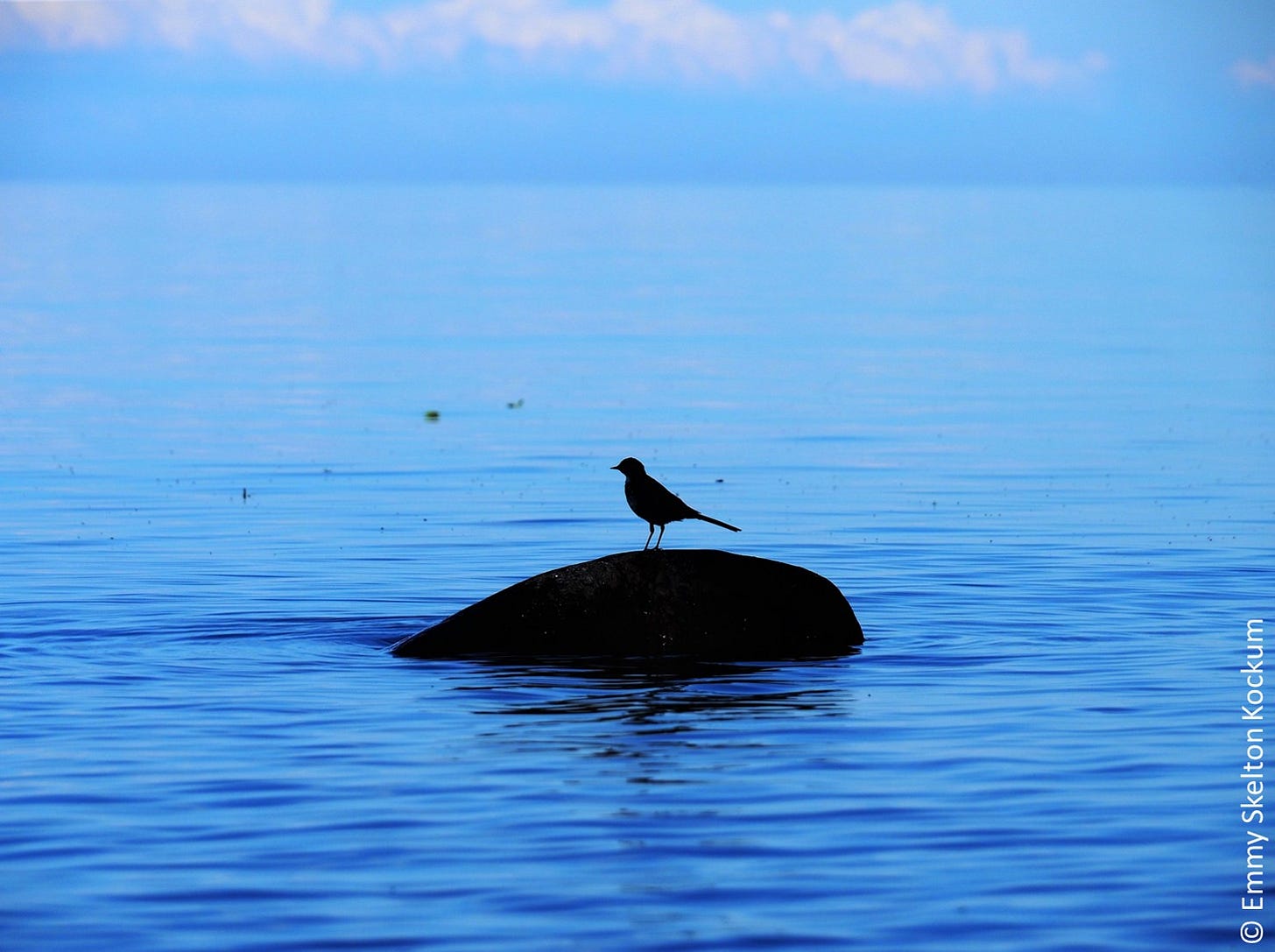When I was confirmed, I got to choose a “confirmation saint.” This is the saint I ask to “follow me through life.” I chose Francis of Assisi because he is spoken of as the “patron saint of nature.”
Saint Francis was born in 1181 in Assisi – a small village amidst the Apennine Mountains of Italy.
He wrote of nature as “the mirror of God.” I find this beautiful.
In his “Canticle of the Creatures,” he wrote of the Sun as “brother”, the Moon and stars as “sisters” and the Earth as “mother.”
And we find a fine tale in Chapter 16 of “The Little Flowers of St. Francis” where it is written that, while traveling with his companions, Francis came to “certain trees” by the road “whereupon was an almost infinite number of birds” and he said to them “… await me here on the road, and I will go and preach to the birds, my sisters.”
On March 16, 2013 in the Hall of the Pontifical Audiences and three days after becoming the first Latin American pontiff, Pope Francis held an audience with media representatives. During this audience, he explained why he wished to be called Francis – “For me, [Francis] is the man of poverty, the man of peace, the man who loves and protects creation.” And then he continued – “These days we do not have a very good relationship with creation.” And finally, he challenged us – “Do we?”
In his second encyclical letter, Laudato Si’, which was published in 2015 (and no doubt played an important role in shaping the Paris Agreement) and which was subtitled “on care for our common home”, Pope Francis recalls – “Saint Francis of Assisi reminds us that our common home is like a sister with whom we share our life and a beautiful mother who opens her arms to embrace us.” And then he continues – “This sister now cries out to us because of the harm we have inflicted on her by our irresponsible use and abuse of the goods with which God has endowed her.”
As Pope Francis passes from earthly life to eternal life, I ask you to join me for a moment of reflection on his beautiful words.
“Our common home”
We share one planet with each other and with 8.7 million other species.
On this planet, we share one atmosphere and one global ocean.
That we share one atmosphere is elegantly exemplified by NASA’s particle model which shows how fast volcanic dust spread around the globe following the June 1991 eruption of Mount Pinatubo. We see that within a few months, volcanic dust had circled the globe multiple times. This visualisation reminds us that, for the atmosphere, it makes little difference which country emissions (particles or greenhouse gases) come from. It reminds us that pointing an accusing finger at one another rather than reducing our own emissions will not solve the climate crisis.
We also share one global ocean even if we give its “parts” different names. The constantly moving currents of the global ocean conveyor belt pass from one ocean to another, encircling the globe. A visual reminder of the oneness of our oceans comes from the garbage patches where our waste collects in giant “whirlpool-like” ocean gyres. This visualisation reminds us that our waste sees no borders. Instead, ocean currents decide its fate.
“The harm we have inflicted”
Our emissions inflict harm everywhere, on everyone and on all living things.
And when we inflict harm in one place, we put other places at risk of harm.
We harm the weather. Heat waves that are more frequent and hotter because of climate warming inflict harm. Not only on higher income countries, which are collectively responsible for more than 80% of carbon dioxide emissions, but also on lower income countries.
We harm the coasts. The seas are now rising twice as fast as it was three decades ago because of climate warming. Sea level rise inflicts harm. On higher and lower income countries alike.
We harm life. At 1.5 degrees of climate warming, 2% of species are at risk of extinction. That’s one-in-fifty species. Among the worst affected are migratory species. One-in-five of them, many of them birds – the “sisters” of Saint Francis – risk extinction.
“Our irresponsible use and abuse of the goods”
Our population has risen by a factor of 3 since the fifties. At the same time our energy consumption has risen by a factor of 6. That’s twice as fast. This means that – on average – we are consuming twice as much energy per person. Making stuff consumes energy. This means that – on average – we are consuming more stuff per person. Most of that energy comes from burning fossil fuels. This explains why our carbon dioxide emissions have also risen by a factor of 6 since the fifties, causing climate warming. Doubling our consumption equates to inflicting more harm on our common home. It equates to “irresponsible use and abuse of the goods.”
“Our sister”
I have two daughters and the bond between them is strong. They share one another’s sadness and they share one another’s joy. They defend one another and neither would inflict harm on the other. I think that there is special kind of love between sisters. In memory of Pope Francis, may we pray that we too can see our common home as our sister and that we too can show it that special kind of love.




